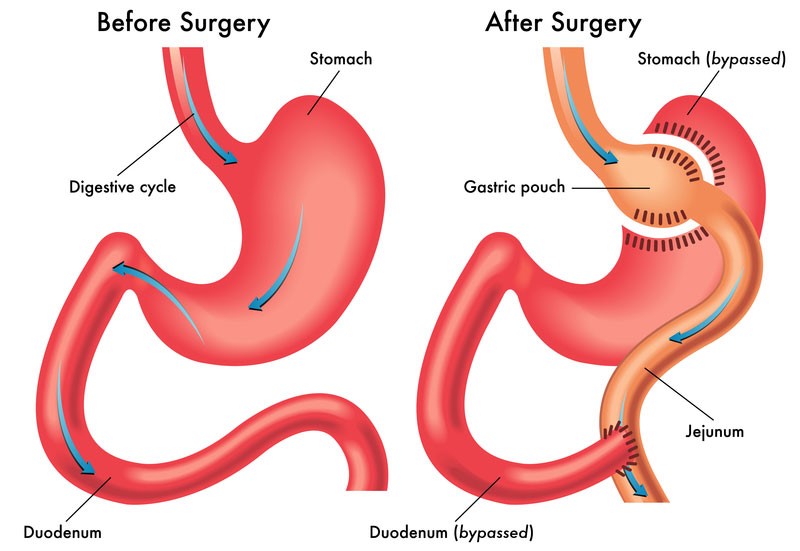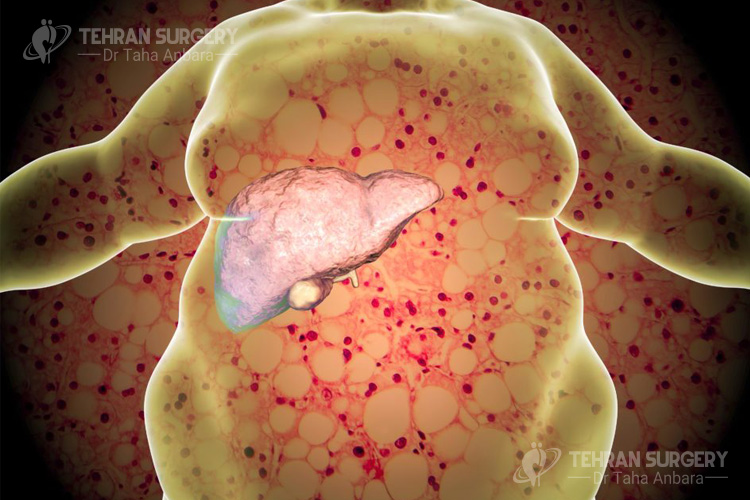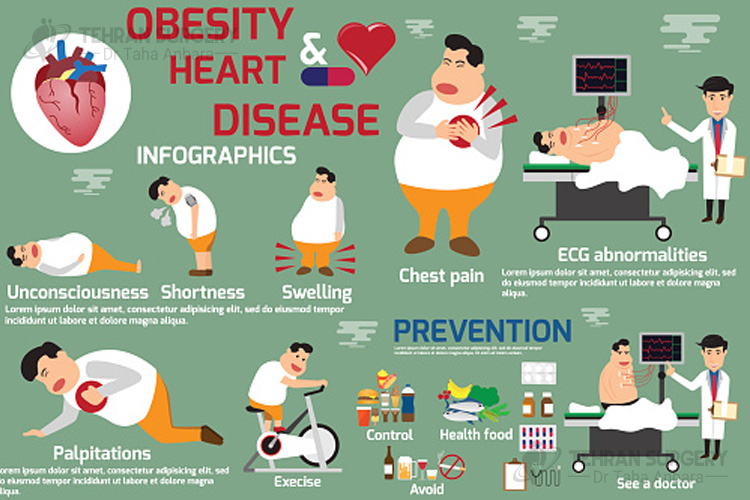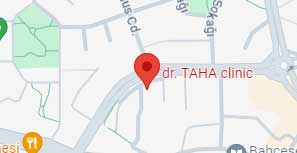
Gastric bypass surgery
Gastric bypass surgery is a type of bariatric surgery that helps you to lose weight by reducing foods that you can eat. During gastric bypass surgery that also called Roux-en-Y gastric bypass, the surgeon divides the stomach into a small upper section and a larger bottom section. Then a small part of the small intestine will be connecting to a small hole in the pouch. Bypass surgery can be performed in two different ways: with open surgery, the surgeon makes a large incision to open the belly. And by the laparoscope, that trocar and a laparoscope are placed in your belly.
Gastric bypass risks and complications
There are some risks associated with gastric bypass surgery as other weight loss surgeries that include short term complications such as infection, blood clots and leak in the gastrointestinal system and long term complications such as dumping syndrome, gallstones, vomiting, and hernias. There are also some other risks with bypass surgery such as:
- Pouch stretching: the stomach gets bigger over time and stretching back to its original size.
- Nutritional, vitamin and mineral deficiencies.
- Stomal stenosis (stricture). The new connection between the stomach pouch and small intestine may be narrow so it needs to be enlarged.
- Dumping syndrome. It happens when food moves too quickly from the stomach to the small intestine that including early dumping (occurs 15-20 minutes after eating) and late dumping (one to three hours after eating). The symptoms of early dumping are nausea, dizziness or fainting, heart palpitation- a rapid heartbeat and sweating, bloating and abdominal cramps. The symptoms of late dumping include hunger, fatigue, confusion, tremors and fainting, sweating and heart palpitations.
Gastric bypass pros and cons
There are many advantages and some disadvantages with gastric bypass surgery the same as other weight loss surgeries. Gastric bypass surgery not only limit the amount of food that you can eat but also affect the level of a hunger hormone and changes your brain’s response to eating. About 96% of health problems associated with obesity will resolve by bypass surgery. Some other advantages of bypass surgery are as bellow:
- Gastric bypass surgery is very effective for diabetic patients as much as their medications need will reduce immediately after the surgery or sometimes they can stop the completely diabetic medication.
- After bypass surgery, you don’t need any ongoing adjustments which are required with other procedures such as gastric banding surgery. You just need to some regular checkup in order to check the weight loss process and nutrition.
- On the other hand, this type of bariatric surgery is very effective for patients who extremely tends to use high sugar or high-fat Because dumping syndrome is directly linked to high sugar and fat intake and since the dumping symptoms are very unpleasant so patient discourages to use high calories and sweet foods.
- There are more predictable weight loss outcomes with gastric bypass due to tighter dietary restriction and less caloric absorption, it is particularly effective for patients with larger BMI.
There are also some disadvantages associated with bypass surgery such as:
- Complications of bypass surgery are more serious than other bariatric surgeries.
- The risk of nutritional deficiency is higher with this type of surgery because of the reduced absorption of vitamins and nutrients. You may need to take life-long vitamin and mineral supplementation to prevent deficiency following surgery.
- A permanent change in your anatomy
- The operation is not adjustable.
Gastric bypass revision
Although gastric bypass surgery is most successful for an average of 60 to 80 percent of patients but sometimes gastric bypass revision may happen for some patients because of failure to lose enough weight or due to medical complications such as enlarging the connection between the stomach pouch and small intestines and weight regain that may occur because of poor diet and exercise habits. In this condition, the patients’ digestive system become accustomed to the changes and return to unhealthy eating patterns. So surgeon has to reduce the stomach pouch and stoma to a size similar to the original bypass surgery by different revision procedures such as laparoscopic reversal.
Anyway, gastric bypass surgery is one of the common bariatric surgeries that help patients to improve their appearance and solve health-related problems same as other weight loss surgeries. Although there are also some other alternatives to bypass surgery such as diet and exercise plans, prescription weight loss drugs, endoscopic weight loss procedure, and other surgical bariatric surgeries.









